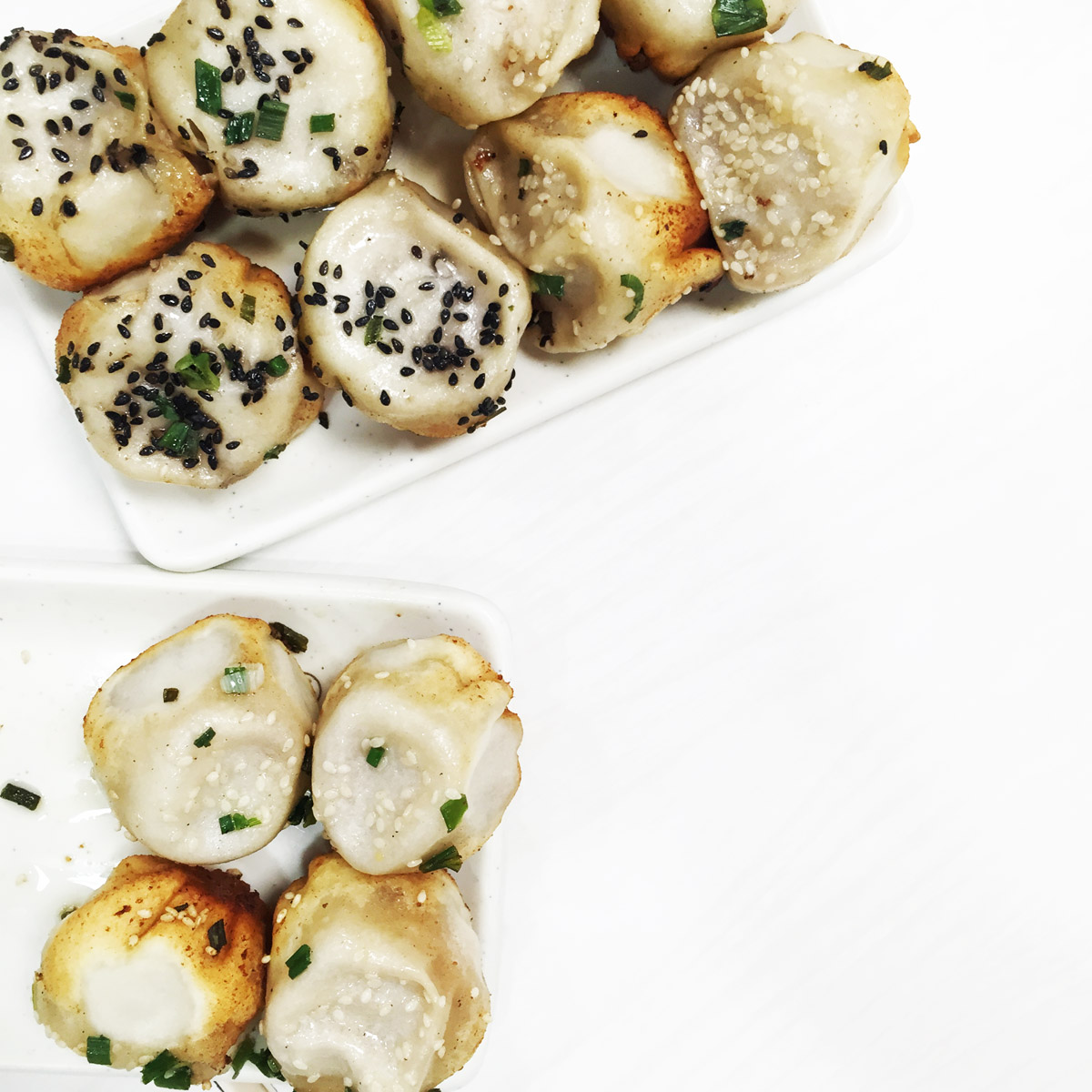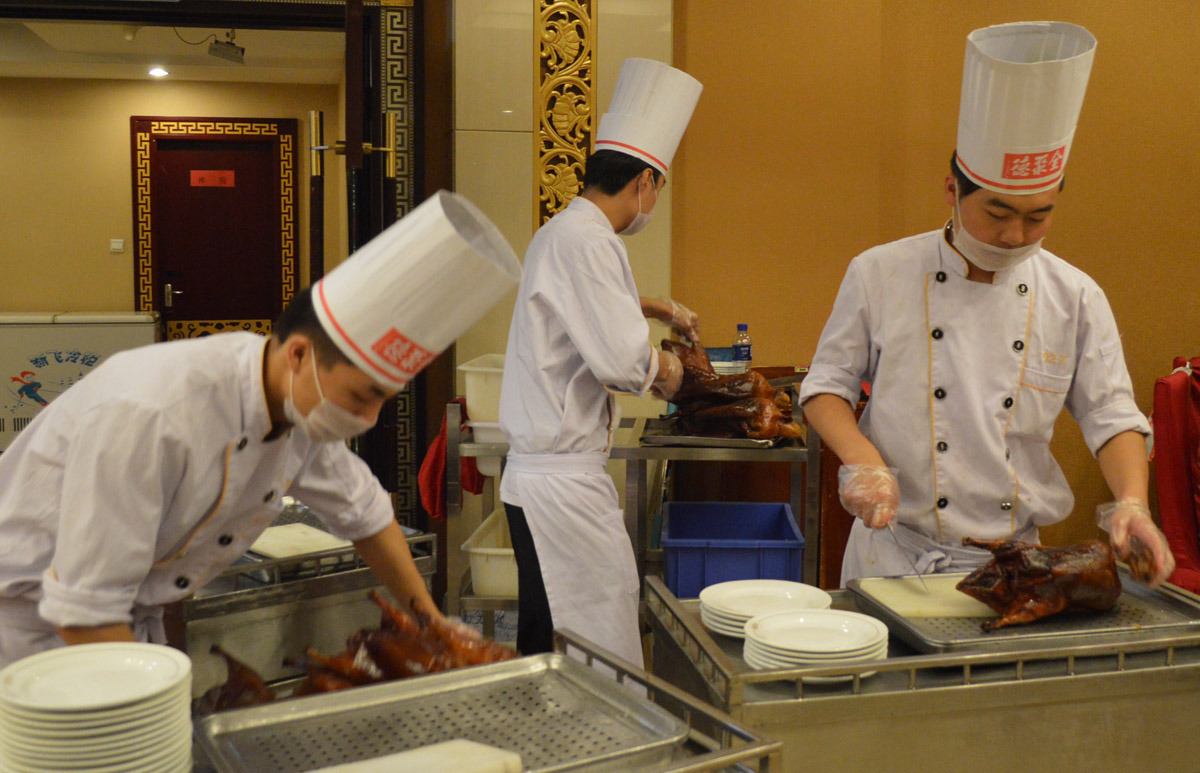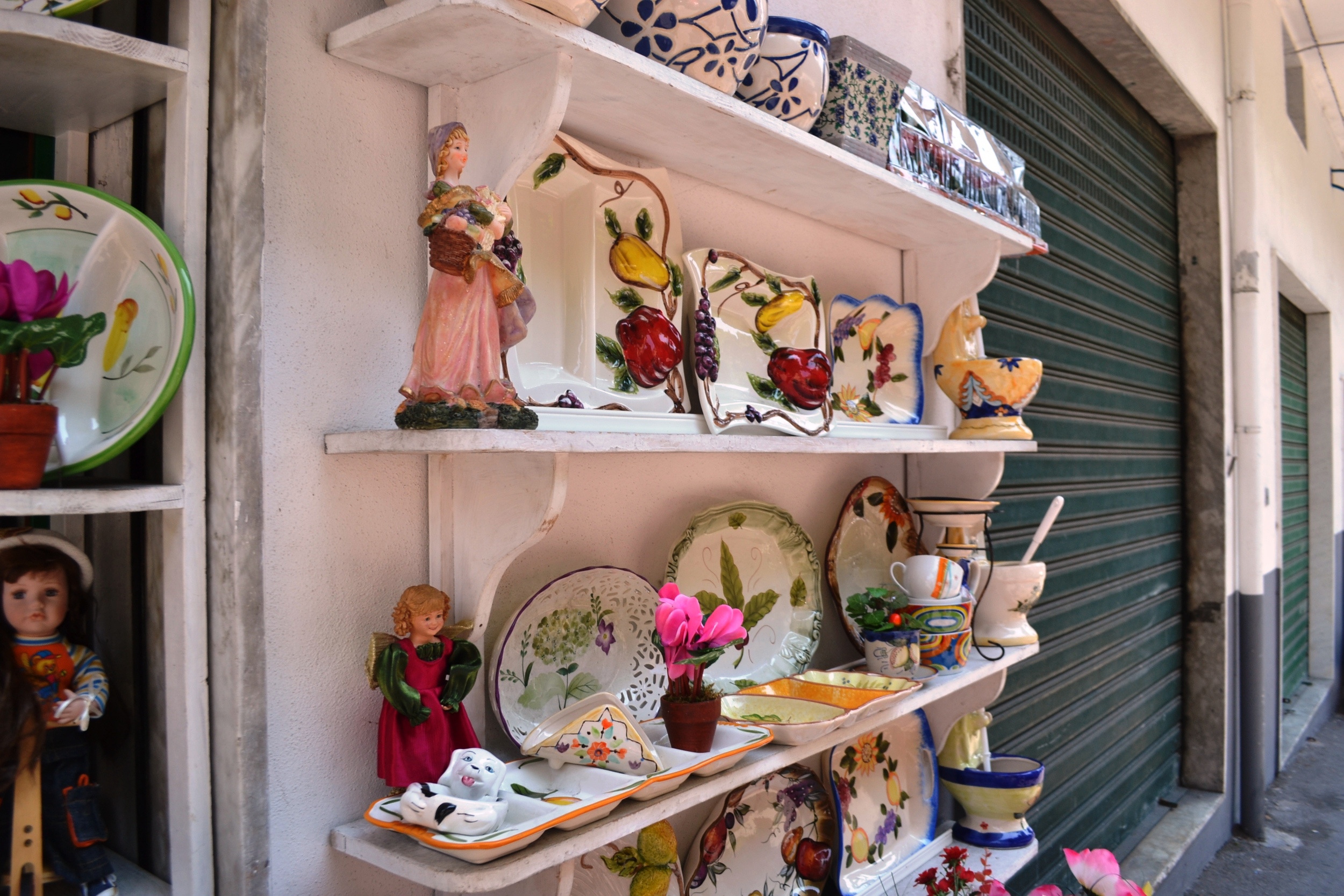It was my first time overseas and first time to a non-English-speaking country. It was exciting but also nerve-racking - there were so many things to learn and do before leaving for my 6-week summer program in Florence, Italy. What lay ahead was the most incredible experience of my life up to that point and was the catalyst of my travel obsession.
You can never be too prepared in my book, so here are 10 things I wish I knew before I studied abroad:
10. Everything will be okay
I knew in the back of my mind that everything would be fine, but it can get tough to shake that irrational fear of everything going wrong. If you’re overwhelmed, know that it will be completely worth it once you get there and that everything will work out.
One way to help curb pre-travel anxiety is to pin down the reason why you’re anxious. Is it a fear of flying? A Google search of how safe flying is will pull up tons of articles to help calm those nerves.
What if you are not able to figure out what exactly is making you nervous? About a week before I left for China, I got this deep, adrenaline-like stress feeling in my stomach. I really had no idea why I was so anxious, given that I’m not afraid of flying nor of what lay ahead – I’m working with a structured program where everything is set up.
However, I hadn’t yet packed or prepared for my trip since I was still unpacking from San Diego the weekend prior and went back to work for two days. Once I started packing and researching about Chinese culture my fears ceased. Making a list of what needs to get done and taking it one step at a time seriously helps so much!
Lesson: Everything turned out to be totally okay - great, even! - when I studied abroad and with every trip I've taken since.

9. You Should Follow Study Abroad Veterans’ Advice
Prior to departure, my school held a pre-departure orientation about preparing for our trip abroad. They brought in a panel of study abroad ambassadors who gave us tons of advice from a student perspective.
Everything from money and exchanging currencies, cell phones, planning weekend trips, doing homework, and what the culture was like was covered and it was extremely helpful. Since I had never been, talking to those that had been made me feel much more prepared.
Also, reach out to other students in the program, whether they go to your school or through a Facebook group. This will make you excited and also feel more prepared since you have an idea of who you're going to be with!
Lesson: Make sure you take advantage of orientation or pre-departure events before you go abroad and get advice from people who've been in your shoes previously.

8. ...But Take Others’ Advice with a Grain of Salt
I specifically remember one of the study abroad ambassadors telling us the summer downpours are heavy, and a North Face waterproof windbreaker is the best option for staying dry. True, but literally everyone took that advice and when walking in groups during the summer drizzle we all had the same outfit on, in different colors.
Since I grew up in Seattle I had never considered just getting an umbrella instead, though with an umbrella I would've blended in a little better while still not taking up much room in my bag.
Another student said, “Eh, you can just do Venice in a day.” One of the trips offered through the school was a weekend in Venice and Verona. I signed up for it along with 11 or 12 other students. Many others didn’t because they listened to the veteran student's advice about Venice being day-trip material.
The trip was canceled. It's all good – it’s not difficult to get to Venice, so we'll make it there one day, but talking to students who did do a day trip said they felt rushed and wished they would've spent a night.
Lesson: Do your research beforehand and decide what’s right for you. For example, does getting a bunch of camping gear seem worth it because a group of former students said it came in handy for a particular trip? Do you actually like camping, and if not, does that particular trip sound like something you’d actually do?

7. Plan Some Weekend Trips Ahead of Time
Since I studied abroad through a faculty-directed program, classes were designed to be Monday-Thursday with the intention that we’d be traveling most weekends.
I really felt like I must have had my head in the clouds when I was talking to some other students at orientation who asked me which trips I was doing. I signed up for a few school trips but didn’t plan any others until I got there.
Some friend groups had already booked everything well in advance for certain weekends, which was helpful in terms of getting lower rates on flights and hostels during the busy summer season. I still ended up booking trips after arriving in Italy with my friends after getting there, though certain aspects of the trip were more expensive last-minute.
Do whatever you feels best in terms of planning: if you are more relaxed with having your itineraries all figured out ahead of time, then do it. If you like to be spontaneous, then wait until you get there to choose your adventures.
Lesson: I found that having the school trips planned ahead of time was helpful, though I would’ve liked maybe one or two others planned with a couple weekends open for whatever.
6. Drink coffee
I didn’t start drinking iced coffee until after I returned from my study abroad. I’m not a morning person. At class every day I felt so tired, but still tried to pay attention as much as I could…though it was impossible to get a full night of sleep when you’re always out to dinner and drinks, gelato, or exploring after classes.
Lesson: You don't need to rely on caffeine to stay awake, though for me personally I feel like it would've helped me to stay more engaged in classes when I was tired from constantly being on the go!
5. Get an international SIM card for your phone or put your phone in airplane mode
I had an international call/texting package with my regular number, which was something like 30 texts/month and $1/minute calls. Back in 2011 I had a BlackBerry so didn’t really use many other apps other than internet and Facebook. After I returned, I had a really nasty data bill from making phone calls back home and for not always connecting to WiFi...oops.
When I moved to Italy a couple years after, I got an Italian SIM card which gave me an Italian number, 2 GB data, and unlimited calls/texts to Italian numbers for only 10 euro/month. I usually added on 20 euro worth of international minutes. So much better AND easier than when I studied abroad. If I wanted to call home I would either use the Skype app on WiFi or some of the add-on minutes.
A smart way to not rack up data if you don’t have a good international plan is to keep your phone on airplane mode the entire time you’re abroad. There are so many apps designed to help communicate via WiFi, and nowadays it’s easy to find WiFi pretty much anywhere. This is what I've done the past two international trips I've taken since they were only a few weeks long each - and I wasn't in a city long enough to need a SIM card.
GSE's recommended apps for communicating over WiFi:
- Skype
- MagicJack
- WeChat (if you're going to China)
- Facebook Messenger
- Glympse
Lesson: Save a lot of money by skipping your provider's international plan and just doing airplane mode or a SIM card instead.

4. Learn the local language
Since I went abroad during a short summer program we weren’t required to take a language course so I opted for doing some classes required for my degree instead. I relied a lot on other students taking the conversational Italian courses to get around, or by asking "Parla inglese?" ("Do you speak English?") to get around.
Later on when I returned to Italy, I ended up picking up a lot of conversational Italian and could get around better. It was so much easier knowing basic phrases and being able to at least somewhat communicate without having to speak English.
Living somewhere else immerses you in that culture, why not take advantage of it and pick up a language while you’re there?
Lesson: The language barrier is one of the biggest challenges when traveling to foreign countries. Don't assume that everyone will speak English wherever you go. Learning at least basic phrases and small talk will really make a smoother experience.

3. Use multiple adapters
For some reason I only brought one plug adapter. This would’ve been fine for a shorter trip, though having two or three would’ve been much more convenient when you need to quickly charge your devices.
Label your adapters too because most of them all look the same. They can easily get mixed up among other people's. A Sharpie or even nail polish works well for this.
Lesson: It's nice not having to choose whether to charge your phone or curl your hair. And if you lose an adapter, you have a backup without having to go find one at a store.

2. Branch out to other students and locals
Maybe it was because it was summer, but I barely met other students studying abroad. I stuck to the bubble of students in the program, which had cliques of friend groups within the entirety of the program. Our group got really close and we all became good friends! However, we’d only hang out with each other and rarely made an effort to get to know others outside our group.
When I returned to Italy to work for a tour company we had students from a number of schools join our trips. This was a fun environment for everyone to get to know each other, especially for those who signed up solo. That is a great way to get to know other students!
Meeting locals is the best way to truly get to know a place. Even if the language barrier makes it difficult, start with your homestay family or program coordinators! They have firsthand knowledge of all the best things to do, places to go, and where to eat off the tourist track.
Lesson: Don't just stick to your comfort zone. Meet other study abroad/international students and make an effort to get to know some locals. You'll have more connections, friendships all over the world, and insider tips that will enhance your experience that much more.
1. Bring less stuff and budget smarter
Depending on where your program location(s) is/are, you can probably buy anything you’re missing while you’re over there if you really need to. And you really don't need as much as you think, especially when it comes to toiletries - sure, bring a small bottle of shampoo to start off the trip, but unless you're in a really rural town or the middle of nowhere, you'll be able to find regular-sized bottles...just do your research beforehand.
I also didn't have as much extra cash as I probably should have prepared for prior to leaving. I spent nearly all my money (though knew I'd be able to go back to my summer nanny job to save back up), though I really should have budgeted better and saved more prior to leaving. Having extra money, especially in case of an emergency, is always a nice cushion for when you study abroad.
“When preparing to travel, lay out all your clothes and all your money. Then take half the clothes and twice the money.” - Susan Heller
Lesson: When traveling to multiple cities, especially in one trip, it can be tempting to over pack. Bring what you need, but lugging around heavy bags time after time can get frustrating and exhausting. And having some extra money as a cushion helps to relieve any financial stress.
Read: What to pack for a semester in Italy and What to pack for a semester in Italy...what you DON'T need
To future study abroad students - your experience abroad is going to be a blast and an amazing, eye-opening experience. You'll learn so much about the cities you'll visit, other cultures, and yourself. Good luck and have a FUN time abroad!








































